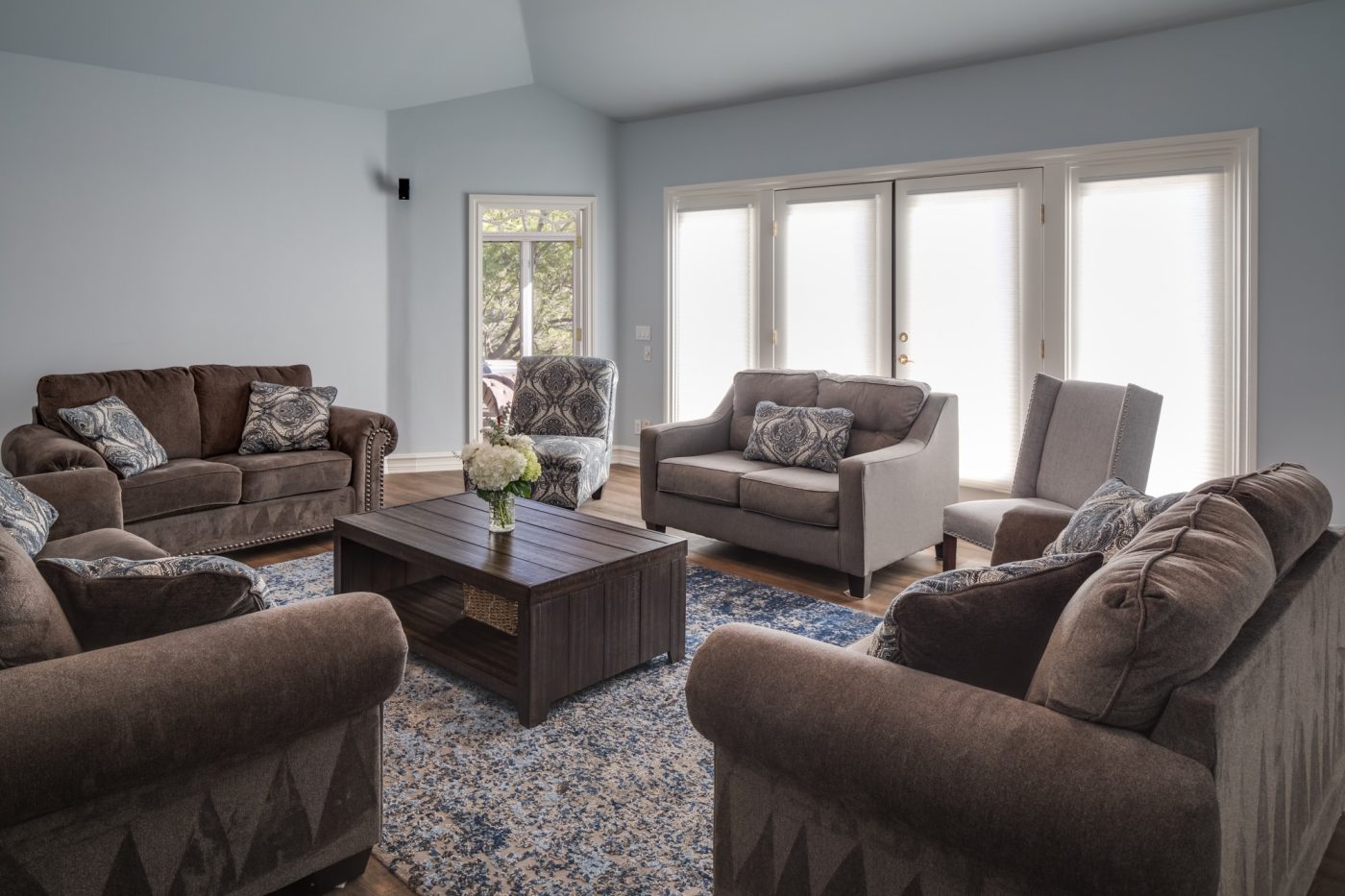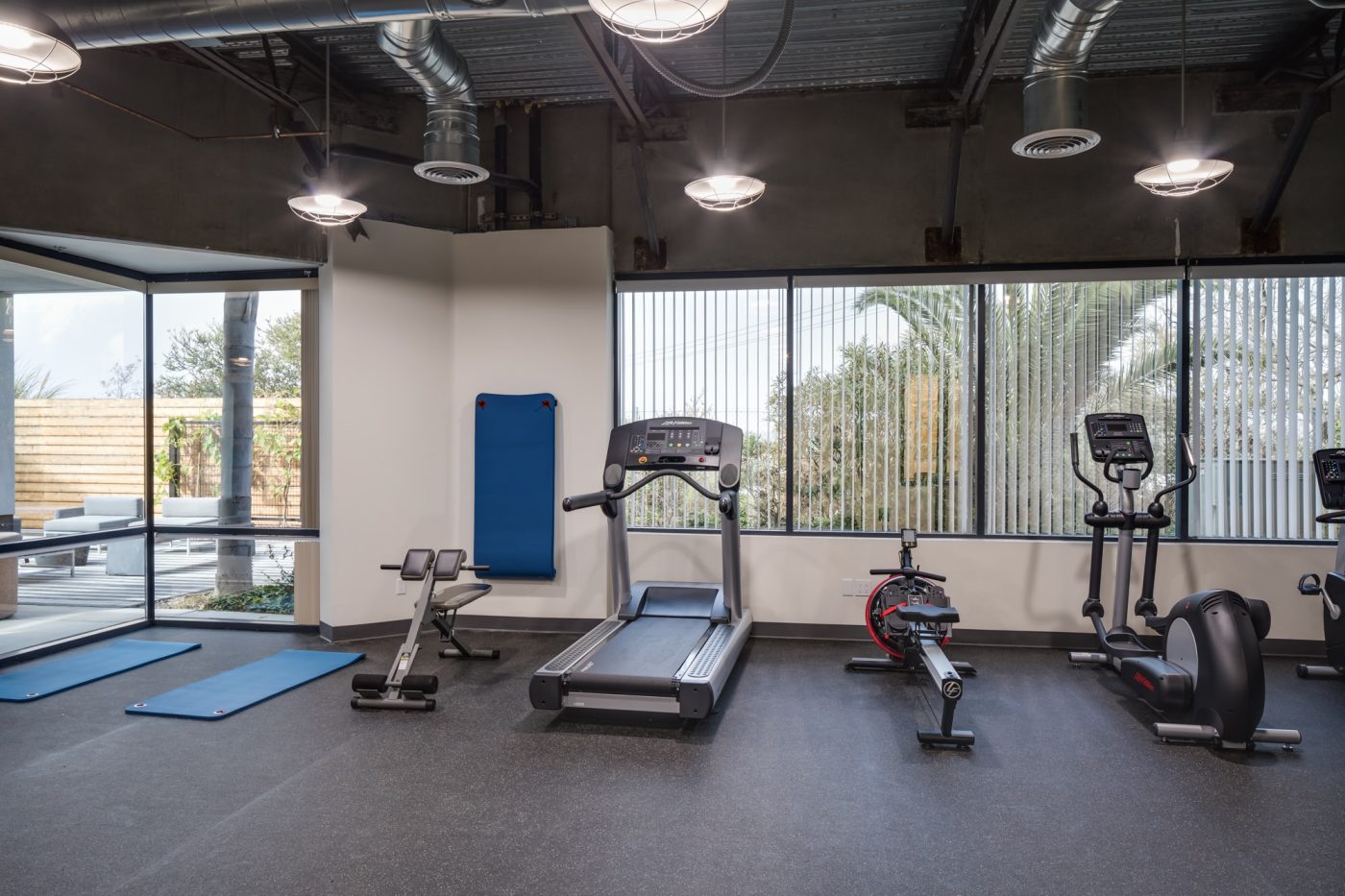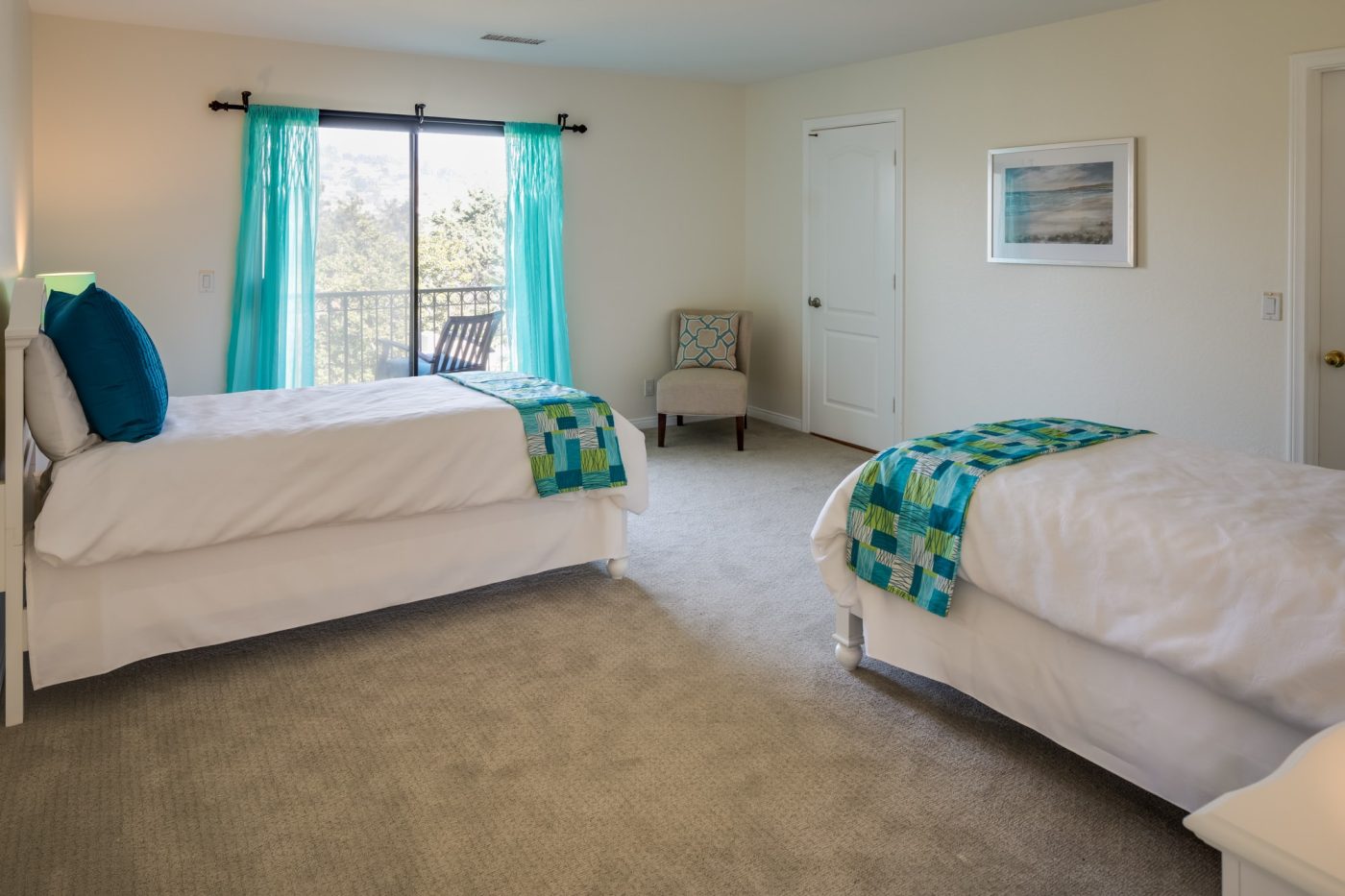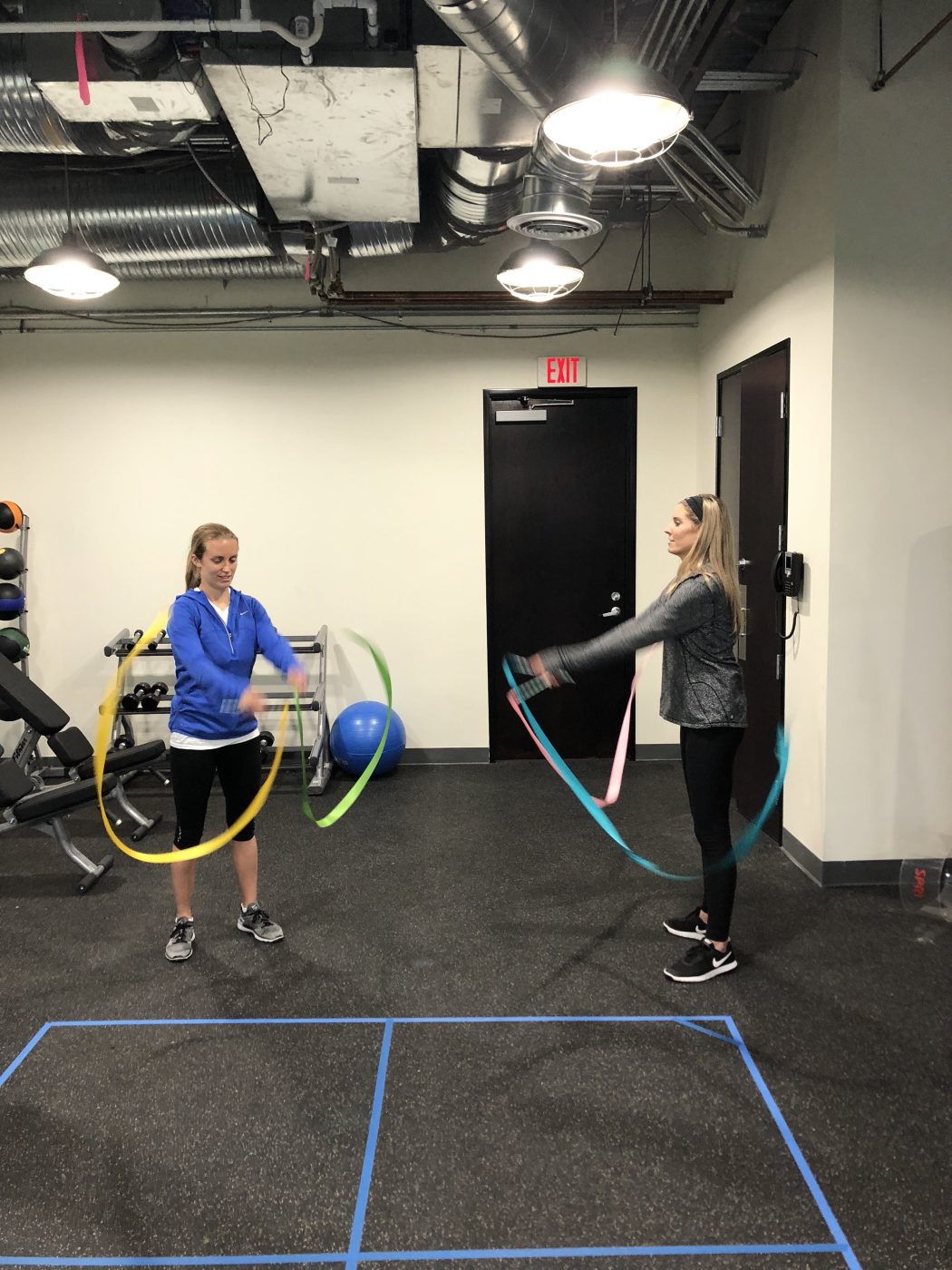Proudly serving Southern California, Montecatini Eating Disorder Treatment Center has helped transform the lives of females, ages 12 and older, struggling with orthorexia for over 30 years.
Orthorexia Treatment
Learn more about orthorexia treatment at Montecatini Eating Disorder Treatment Center in Southern California
Orthorexia can cause significant damage to an individual’s physical and mental health. Though not recognized as a clinical diagnosis by the American Psychiatric Association, orthorexia is a form of disordered eating that begins with a focus on healthy eating, but morphs into a dangerously restricted diet. Individuals who struggle with orthorexia place exceedingly rigorous limitations on what food they will eat, punish themselves when they violate their increasingly exclusive plans, and often end up failing to get proper nutrition. The compulsion to exert such intense control over their diet can cause individuals who have orthorexia to take similarly counterproductive stances regarding exercise and other areas of their lives. Again, the extreme regimentation begins as an effort to exert positive control, but ends up doing far more damage than good.
Though orthorexia is not listed in the fifth edition of The Diagnostic and Statistical Manual of Mental Disorders (DSM-5), Montecatini is prepared to provide the comprehensive care that can help individuals who struggle with this very serious problem. At Montecatini, women who struggle with orthorexia can learn to establish and follow healthy diet and exercise plans, and make the other changes that will empower them to lead healthier and much more satisfying lives.
Helping a Loved One
Helping a loved one get treatment for orthorexia
Orthorexia can be difficult to identify and understand. It may seem counter-intuitive that a person who is so focused on eating healthy is actually harming herself. But if someone you love has been exerting increasingly excessive control over her eating habits, she may be in need of professional help. Here are a few ways that you can help your loved one get the care that she needs:
- Talk to your loved one about what you have been observing. Express your concerns and, most importantly, listen to what she has to say about the matter. She may realize that she needs help, but has previously been incapable of asking. Conversely, she may respond with denial or even anger. What is most important is that you open a dialogue, you listen to her responses, and you act on what you learn from these conversations.
- Familiarize yourself with the concept of orthorexia. Reputable organizations such as the National Eating Disorders Association (NEDA) are excellent sources of online information.
- Look into the types of treatment that have helped others who have had similar struggles, and identify programs that provide the specific care that your loved one needs. Be sure that the program or programs you consider accept individuals who suffer from orthorexia, offer comprehensive care, and provide personalized treatment.
- Continue to communicate with your loved one. Do not hector, nag, or issue ultimatums. Instead, continue to express your support and concern.
- Get help. Enlist a small group of trusted friends and family members to help you with your research and your efforts to get your loved one to agree to enter treatment.
- When your loved one does agree to get help, do whatever you can to facilitate the admissions process. Make appointments, help with paperwork, arrange for transportation, and do whatever else needs to be done to ensure that your loved one follows through and gets the help that she needs.
Remember that treatment is just one step in the recovery process, but it is a big step. Plan to continue to be an active, positive presence in your loved one’s life before, during, and after she is getting the help that she needs.
Why Consider Treatment
Why consider treatment for orthorexia
Though often the result of positive intentions, orthorexia can wreak considerable havoc on an individual’s life. When a person begins to place excessive restrictions on her diet, she risks a range of health problems that can result from malnutrition. Failing to follow a balanced, healthy diet can cause a person to lose dangerous amounts of weight and to experience a range of additional problems, including organ damage, muscle weakness, impaired ability to concentrate and focus, and lack of energy and motivation. Continued hyper-focus on a restrictive diet can cause a person to withdraw from her friends and family members, and lose interest in activities that were once of great importance. Furthermore, obsessions with restricted eating and the resultant punishments that a person can place upon herself when she fails to meet her unrealistic goals can have a devastating physical and emotional impact. The compulsive behaviors associated with orthorexia can undermine a person’s academic progress and occupational performance, and can damage her relationships with family members, friends, and colleagues. The continued compulsions associated with orthorexia will never allow a person to feel as though she has succeeded; instead, she will suffer with worsening self-image and self-esteem. The path of orthorexia leads to damage and despair, but with the effective care that is available at Montecatini, women who have begun walking this dark path can take their first steps into the bright promise of a healthier, happier, and more satisfying future.
Why consider Montecatini
Eating disorders are progressive and debilitating illnesses that, when left untreated, have the highest mortality rate of any mental illness. Depending on which eating disorder a person struggles with, she may suffer from malnutrition, obesity, organ damage, diabetes, and developmental problems, as well as other mental health disorders. Because of their pernicious and systemic nature, it is not enough to merely treat the physiological symptoms of an eating disorder such as orthorexia. Instead, a person must also receive care for the co-occurring psychological issues that may cause her to return to her unhealthy eating behaviors. If treatment is to be truly successful in the long-term, it is important that each person receives a full spectrum of physiological and psychological treatment. At Montecatini:
- Treatment is provided in a warm, family-like atmosphere.
- Programming is supplied by staff who demonstrate true empathy.
- Customized, multi-dimensional treatment plans are created for each patient.
- Skill-building opportunities are provided so that patients can learn to integrate healthy behaviors into daily living.
- Personalized, consistent care is afforded to each patient.
- Comprehensive family support and therapy are integral parts of treatment at Montecatini.
- Simultaneous treatment for co-occurring disorders is available.
- Renowned medical and psychiatric management round out the therapeutic services we offer.
- Nutrition therapy is factored into each patient’s treatment in order to help her reestablish a healthy relationship with food.
- A full continuum of care is offered in order to ensure each patient’s long-term recovery.
At Montecatini, we believe that no matter how long you have suffered from an eating disorder, recovery is possible and hope is manifested daily as we work together in support of your long-term healing and inner-peace.
Types of Treatment
Types of orthorexia treatment offered at Montecatini Eating Disorder Treatment Center
Since treating our very first patient in 1991, Montecatini has helped inspire and transform the lives of hundreds of women. We are nationally recognized as a leading provider of eating disorder rehab treatment and we are dedicated to helping our patients resume their lives as healthy, joyful individuals who are ready to live to their fullest potential. Females aged 12 and up can heal in our residential, partial hospitalization, and intensive outpatient programs. These programs are designed to help our patients overcome anorexia nervosa, bulimia nervosa, orthorexia, and binge-eating disorder, as well as co-occurring mental health disorders.
Montecatini is located just three miles from the Pacific Coastline in picturesque Carlsbad, California. The center itself exudes the comfort and safety akin to being at home, and our staff puts forth every effort to ensure that the atmosphere we create is both peaceful and conducive to recovery. Each patient is treated with the utmost respect and dignity, and her care will be personalized to her unique history, challenges, life experiences, and needs.
Our staff of passionate and devoted professionals, many of whom have overcome their own struggles with eating disorders, work in close collaboration with each patient who comes to us for treatment. By creating personalized plans for each person who chooses to heal with us, we are able to provide the highest quality of care while honoring the individuality of each patient. Depending upon the outcome of an initial assessment, patients may have the following interventions incorporated into their customized treatment plans as they work toward overcoming orthorexia:
Medical care: For patients who are medically stable, yet still require additional care for their physical health as they navigate the recovery process, Montecatini is pleased to offer renowned medical care. As a distinguished provider of eating disorder rehab, we recognize that the physical health of our patients can be compromised by the presence of an eating disorder. We also partner with specialists in San Diego to ensure our patients’ medical needs are appropriately met.
Medication management: Some Montecatini patients benefit from the inclusion of certain medication(s). Our psychiatrist is available to meet with patients once per week to assess medication needs, prescribe medication, and adjust dosages as needed. Physician’s assistants and nurses are also available to monitor the effectiveness of any medication that is prescribed and to ensure that patients are adhering to their medication regimens.
Individual therapy: Individual therapy occurs three times per week. Each patient meets with her assigned primary therapist in a one-on-one setting, which provides an excellent forum to assess progress and to discuss setbacks and successes that have occurred during treatment.
Family therapy: Each patient’s family members are invited to participate in family therapy sessions while their loved one is receiving treatment. This treatment method, which is offered once per week unless otherwise indicated, is designed to heal emotional wounds and promote unity among our patients and their primary support networks.
Group therapy: Offered up to five times per day, group therapy is a key component of treatment at Montecatini. Led by therapists, registered dietitians, nurses, patient assistants, yoga instructors, and art therapists, group therapy covers a wide range of topics that can further the recovery process and provides an optimal setting for patients to gain support and encouragement from staff members and other patients. Groups that may be incorporated into a patient’s treatment plan as she works towards recovering from an eating disorder may include the following:
- Cognitive-behavioral therapy (CBT)
- Dialectical behavior therapy (DBT)
- Expressive arts therapy
- Exposure therapy
- Nutrition counseling and education group
- Interpersonal process group
- Spirituality/12-Step group
- Outside 12-Step group
- Food and feelings group
- Body image
- Relapse prevention
- Menu planning and meal preparation
- Yoga
- Mindfulness/meditation
- NIA
- Action planning
- Family weekend incentives
Experiential therapy: In order to help our patients nurture the mind-body connection and apply learned skills in real-world settings, at Montecatini, we are proud to offer a number of experiential therapy opportunities. Experiential therapies complement the other therapeutic interventions we provide and typically take place once per week. Depending on the patient’s needs, the following may be part of her personalized treatment plan as she works toward overcoming her orthorexia:
- Beach trips
- Challenge food outings
- Restaurant outings
- Clothes shopping
- Grocery shopping
- Group dinners
Our experienced staff members, many of whom have specialized training in therapeutic techniques and treating a myriad of conditions, assess patients’ needs on an ongoing basis and can recommend additional interventions if they are determined to be conducive to a patient’s recovery.
Because we realize that recovery from orthorexia does not end with the completion of residential rehab, Montecatini purposefully begins preparing our patients for discharge on the day they are admitted to our program. Many of our patients transition to our partial hospitalization program (PHP) after completing our residential rehab, and then step down to our intensive outpatient program (IOP) after completing PHP. Each patient’s primary therapist determines and coordinates the most appropriate follow-up and aftercare services, and alumni of our program are welcome to attend our weekly support groups and Alumni Events and Celebrations for as long as they wish. Our goal is to help our patients return to lives that are not only functional, but joyful and deeply supported as well.

























